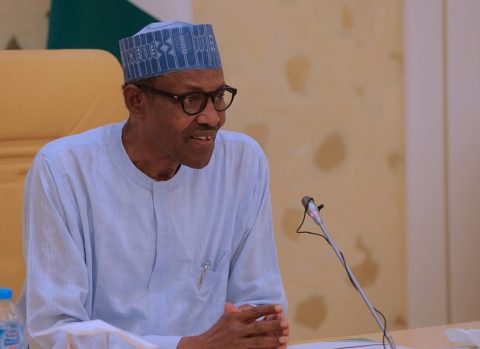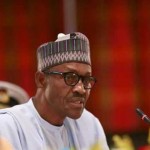African Countries Must Address Climate Change, Poverty – Buhari
African News, Featured, Latest Headlines, News Across Nigeria, News Around Africa Thursday, June 16th, 2022
(AFRICAN EXAMINER) – President Muhammadu Buhari on Thursday said African countries must continue to explore various measures to combat climate change, desertification, while also addressing food insecurity and poverty across the continent.
Buhari said this in a speech delivered by Vice President Yemi Osinbajo at the Ordinary Session of the Council of Ministers of Pan-African Agency of the Great Green Wall (PAGGW), which Nigeria is hosting.
Highlighting the importance of tackling both poverty and climate change on the continent, the President stated that “it is important to emphasize that for Africa, mitigation and adaptation methods for climate change must be mindful of the fact that Africa is confronted with twin challenges.
The ravages of climate change but perhaps more importantly the existential problem of extreme poverty. Both, not one, must be addressed,” Buhari stated.
The President noted that “we must take every opportunity and especially at meetings like this, to remind ourselves as African leaders and our development friends, of what the Great Green wall Initiative is and what it is not.
According to the President, while the original vision was to create a wall of trees against desertification in the Sahel, the horn and across North Africa, the Great Green Wall today has a more ambitious reach—it is now a variety of sustainable land use practices designed to combat climate change and desertification and to address food insecurity and poverty.”
Buttressing on measures taken by Nigeria so far in addressing climate change, the President noted that “Nigeria believes that protecting our planet, its biodiversity and climate are essential to our collective survival”
“The impact of climate change is upon us all over the continent – drought and desertification increasing conflicts over pasture and water, food insecurity, loss of livelihood and youth migration among others.”, he said.
While stressing that the receding Lake Chad was due to the effects of climate change, the President observed that if this major challenge was not addressed urgently, “fishing, dry season farming and all other associated value chain benefits are lost or greatly reduced.”
Urging synergy among African countries in addressing these existential and other associated challenges, the President said, “we must build climate-resilient economies that effectively align with the SDGs, stressing that there was great potential for unlocking the full opportunities in different sectors of the economy.
Buhari noted steps taken by the Nigerian government in this regard, including the recently signed Nigeria Agro-Climatic Resilience in Semi-Arid Landscapes (ACReSAL) Project with the World bank.
He disclosed that the project “will increase the implementation of sustainable landscape management practices in northern Nigeria and strengthen the country’s long-term enabling environment for integrated climate-resilient landscape management.”
While he commended the current initiatives by the international technical and financial partners for pledging financial resources to support the implementation of the Great Green Wall Initiative, the President urged for financing to help preserve African rain forests which he said absorb no less than 1.5 billion tons of CO2 yearly.
“This is more than the Amazon or any other region’s rainforests. Financing is needed to help preserve these vital carbon sinks: because without viable alternative energy sources, much of the local population still depends on burning firewood for cooking and heating. So, there is a need to provide sustainable energy alternatives – and to compensate regional governments who in the interest of maintaining these carbon sinks for us all have to forgo deforestation for agriculture or industrialisation.”
Buhari further noted that Decennial Priority Investment Plan (DPIP) 2021 – 2030 as an important pillar of the overall great green wall project.
“The Plan is hinged on sustainable land management actions that emphasize ecosystem restoration, recovery and conservation of land and biodiversity, socio-economic development activities, adaptation and resilience to climate change.”
He added that the commitment of every nation would be important in meeting the deadline of the Decade on Ecosystem Restoration Agenda.
Related Posts
Short URL: https://www.africanexaminer.com/?p=77967





















